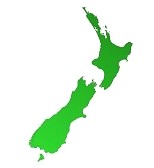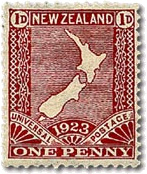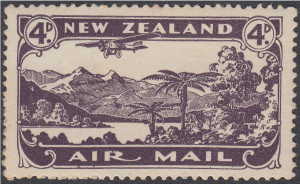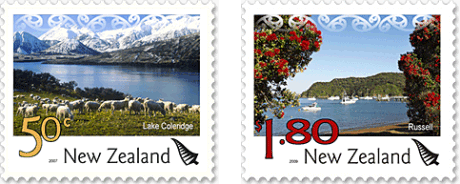coolnz.net – The Benefits of Change

Flags can be powerful symbols, and the right design that will symbolise our own country (rather than Britain being the most prominent thing) will have the following Benefits:

♦ We are more likely to fly it, because it will feel like it's really ours.
♦ It will increase our national pride, and show the world we are proud of New Zealand.
♦ We will be respected as an independent nation. Our flag implies we're a British dependency.
♦ It will strengthen and unite us in good times and bad. (Remember all the flags in 2011?)
♦ Show us as equal citizens regardless of ancestry, which will help our race relations and bring less tension on Waitangi Day. We can see a common purpose that is relevant to all of us.
♦ It will inspire loyalty and aspiration of what it means to be a New Zealander.
♦ We'll have our own separate and memorable identity in the world. This also benefits trade and diplomatic relations with other countries. Our present flag means we're often confused with Australia, or it's assumed important matters need to be referred to Britain.
♦ As an exporting country, easier recognition of New Zealand and New Zealand products will result in greater revenue. (Retaining our present flag comes at a cost rather than a return).
♦ We can happily wave our national flag at sports events between us and Australia. And they'll be able to wave theirs. (On Anzac Day, our old flag can still be a reminder of our special bond).
♦ It'll remove the need for unofficial black flags that confuse our world identity – (if we include a link to our national colours). Without that link, the new flag could continue to take second place. This is an important point, and we need to get it right.
♦ When New Zealanders compete and do well, the world can see we're New Zealand.
♦ There'll be less likelihood of having the Australian flag raised or displayed instead of ours, or the New Zealand flag used for Australia. This happens overseas more than we realise, and even some of our own citizens can't tell the difference – it's not immediately obvious. In this example (seen in Thailand), neither of these flags for Australia and New Zealand are correct.

♦ It will put a stop to all the different flag designs that have been shown here and overseas as "The New Zealand flag" – not just by New Zealanders, but some foreign designers as well.
♦ It makes it less likely we'll ever become a republic, saving us from that cost and upheaval. (Without the Union Jack, there'd be little reason for most of us to even think about a republic).
♦ It will give the Queen a chance to see New Zealand achieve its own unique (grown-up) flag. There is evidence she'd be proud and delighted, so it'll be sad if she never gets to see it.
♦ Give the remaining people who went through the war years a chance to have their say, and to know they'll be considered in our decision.
♦ On the 100th Anniversary of WW1, a proud flag of New Zealand (especially one that includes a fern) will recognise the freedom our war veterans were fighting for. See evidence via Page 4.
♦ For numerous reasons, the new flag would become a symbol of freedom and independence, and an inspirational symbol of pride and achievement in New Zealand.
♦ Make us more aware of our history, what our flag/s mean to us, and what it means to be a New Zealander. We take it for granted, but newer citizens especially will be glad of the insight.
♦ Our flag will be ours alone, and not subject to change if Britain decides to change their flag (which was a definite possibility with the Scottish referendum in 2014).
♦ Resolve the flag issue once and for all, leaving us free to concentrate on other important matters. It's been a recurring distraction for many years, and it needs to be dealt with.
♦ Improve the health of all the people who've worried needlessly about what a new flag will mean. In the end, it'll be a relief to have it finally sorted, and we'll wonder why we left it so long.
The Negative Aspects:
♦ The present flag will be missed (but need not be gone altogether). It'll still be lawful to use it.
♦ Some people will be very upset. Remember, there are ways to retain the meaning of our flag. It would be wrong to assume all our war veterans and the older generation are opposed to a new flag, because a surprising number actually want a new flag (or are open to the idea).
♦ There will be fierce debate. It will help if people take time to learn the reasons for change, and understand the issue from both sides. (And long before we cast our votes). We need to make this decision with rational thought, and not just knee-jerk reactions to what is a very emotive issue. It might divide us temporarily, but the right new flag will unite us in the end.
♦ It will distract us from other important issues. Possibly, but there will always be other issues, and the government is used to tackling a number of things at the same time. If we approach the debate logically and consider both sides, it needn't be such a big distraction.
♦ It will be expensive. Remember, this is a one-off exercise that will be worth it (like when we changed to decimal currency). The less-important changes could be made in gradual stages, and if we keep our present flag to remember our history on days of significance, there'd be no wastage there, or reason to change every image straight away. Flags regularly need replacing anyway because of damage by the wind. The right actual design could last for centuries.
The greater expense will be if we go through the whole process and still have nothing to show for it. This is one situation where we need to work together to get it resolved, and it's in all our interests to get on with it. We just need to realise it will be a positive and uplifting thing for our country. I can still remember when Canada changed their flag when I was little, and I've wanted our own proudly New Zealand flag ever since. This is our one chance to achieve that.
Come on New Zealand – we can do this!



|